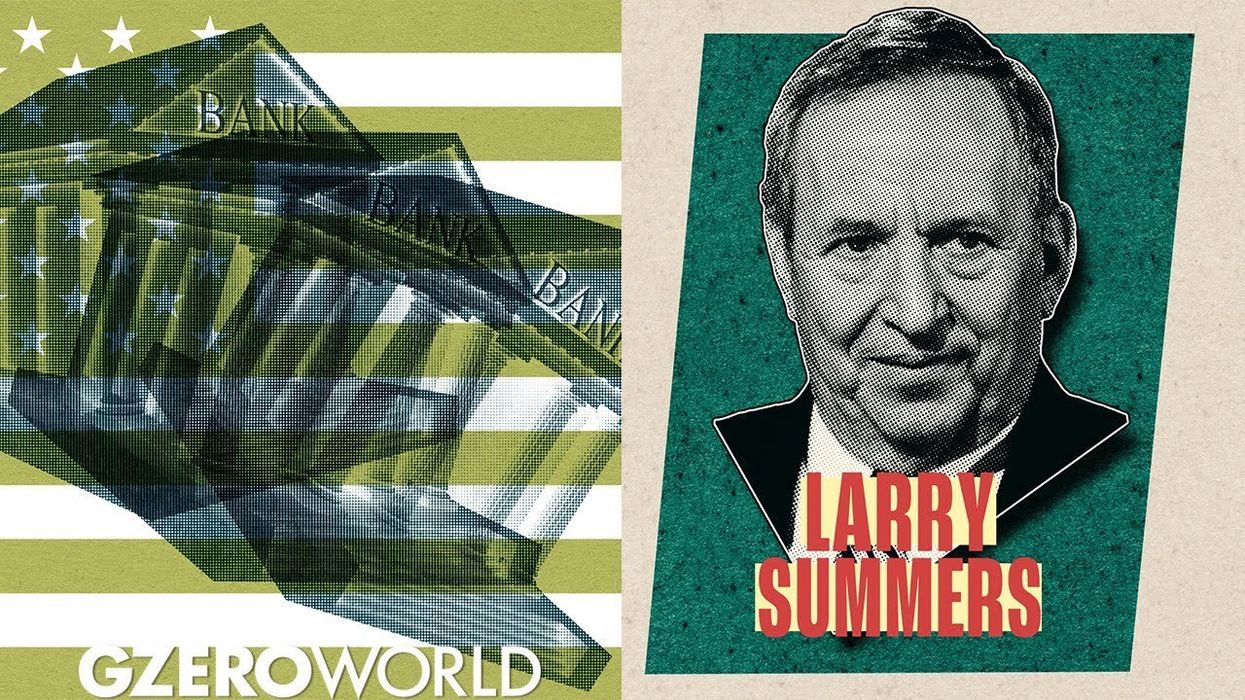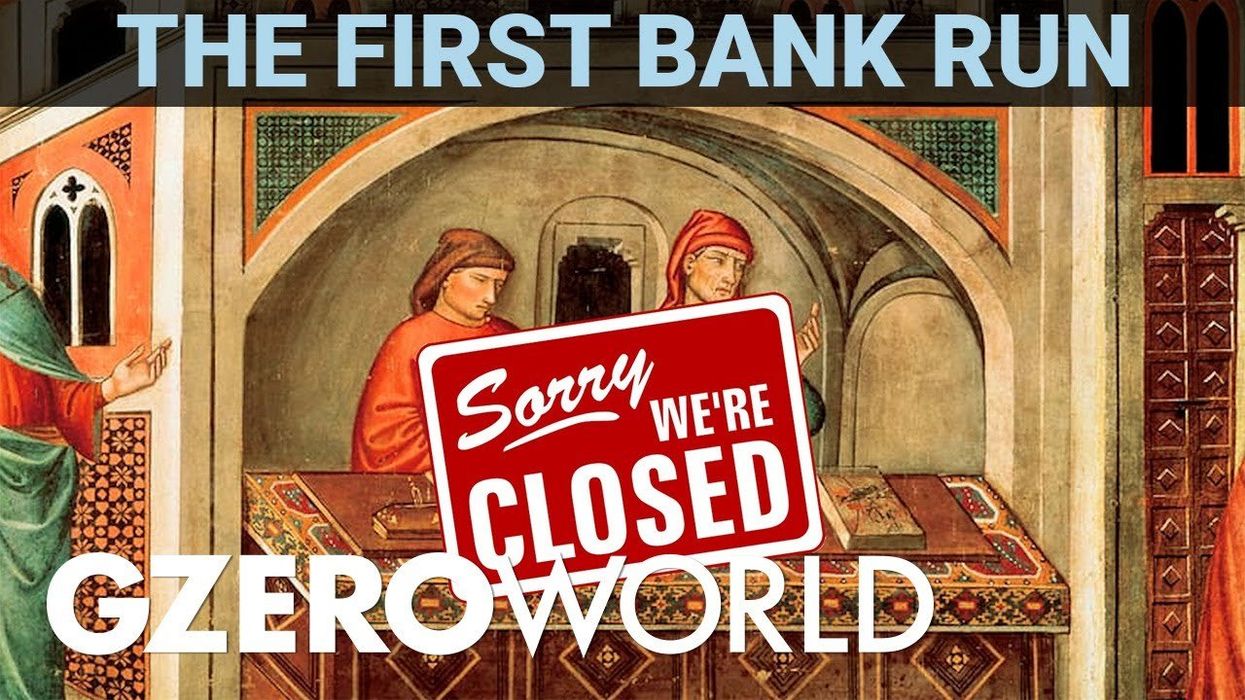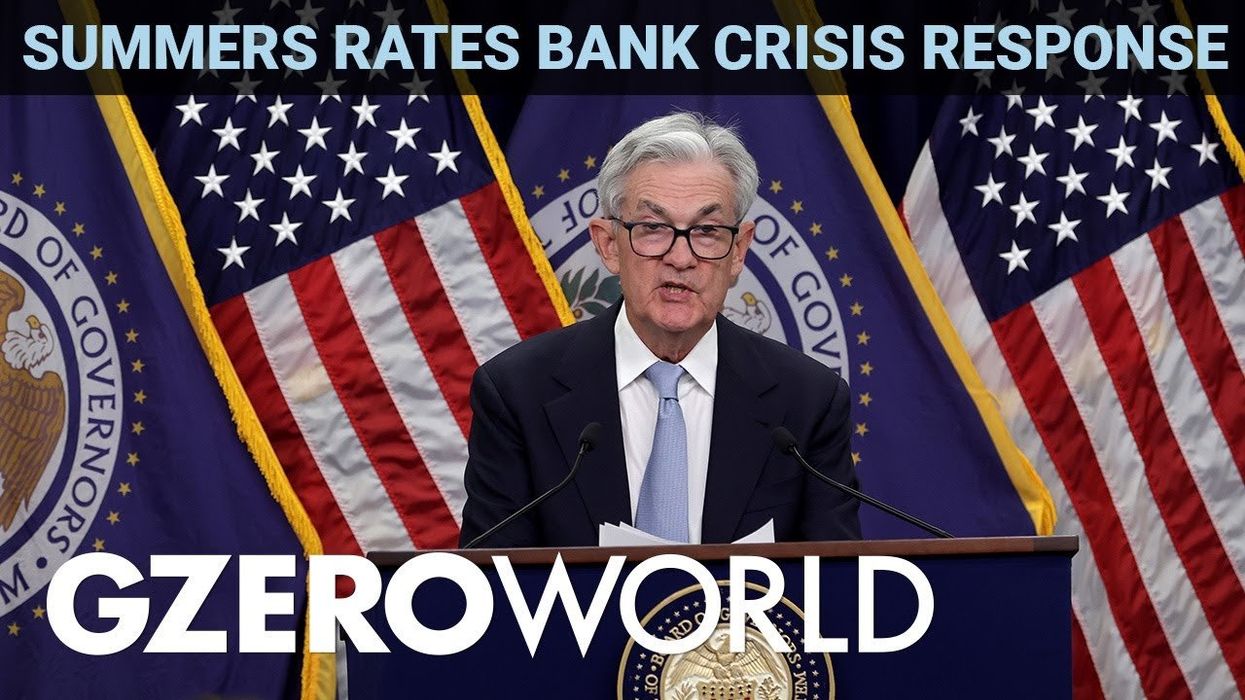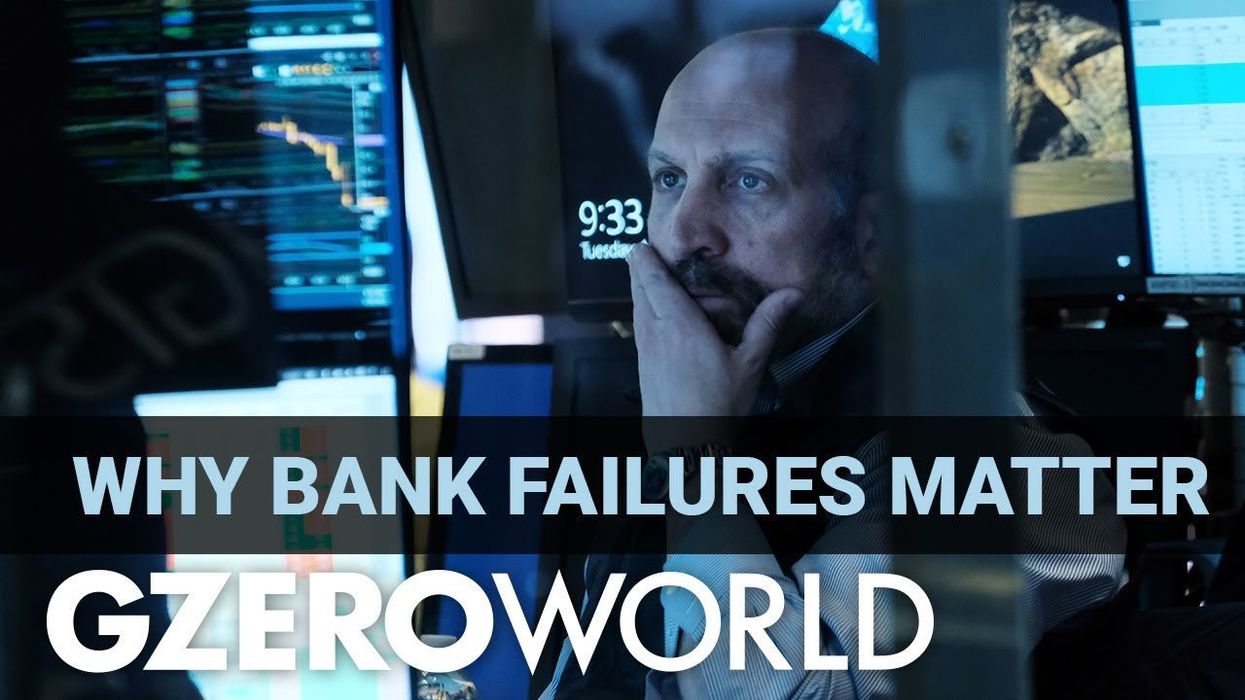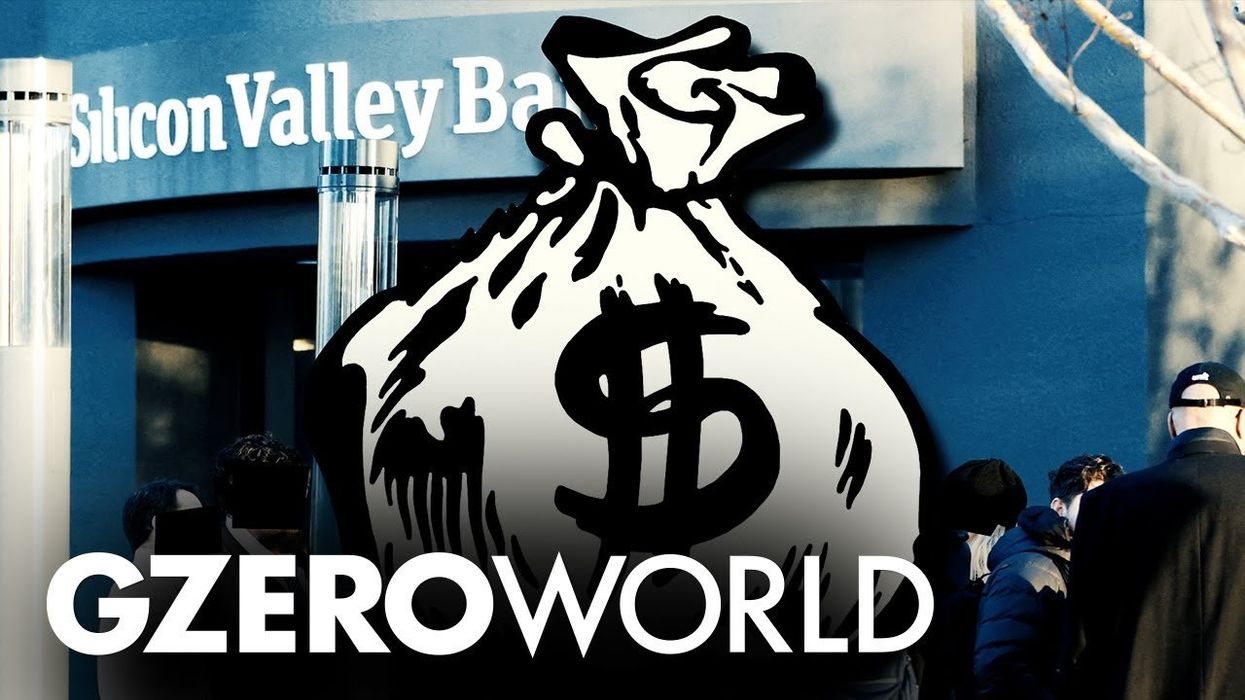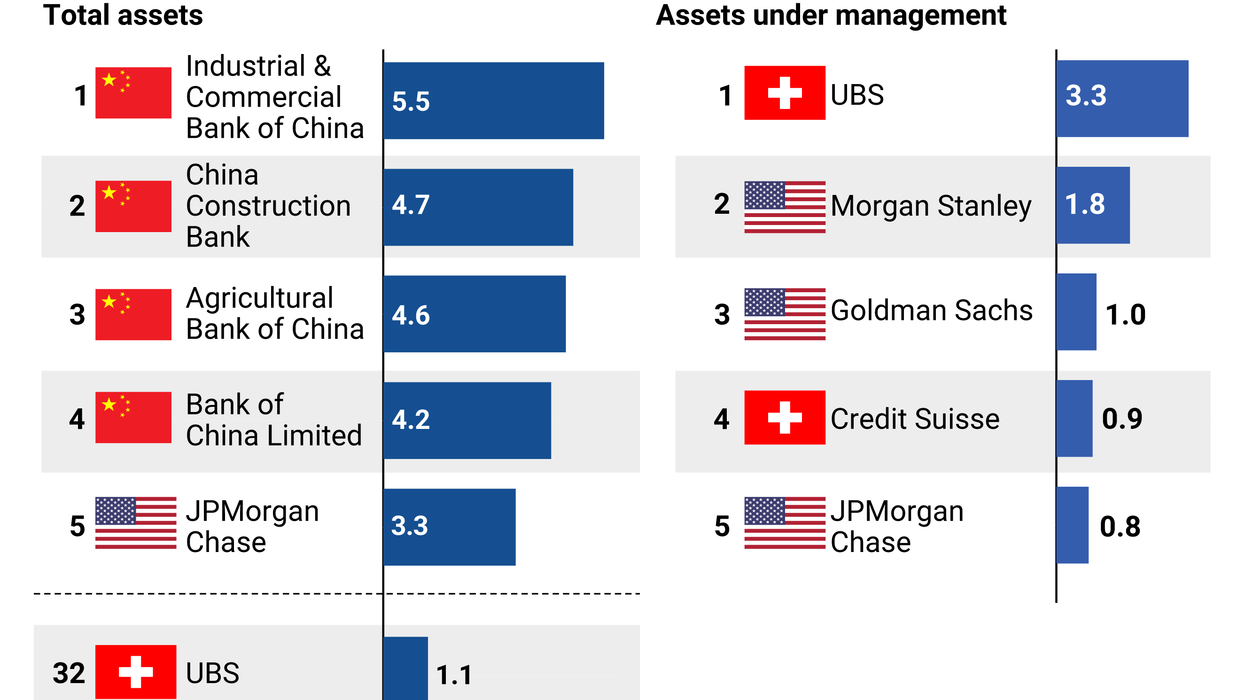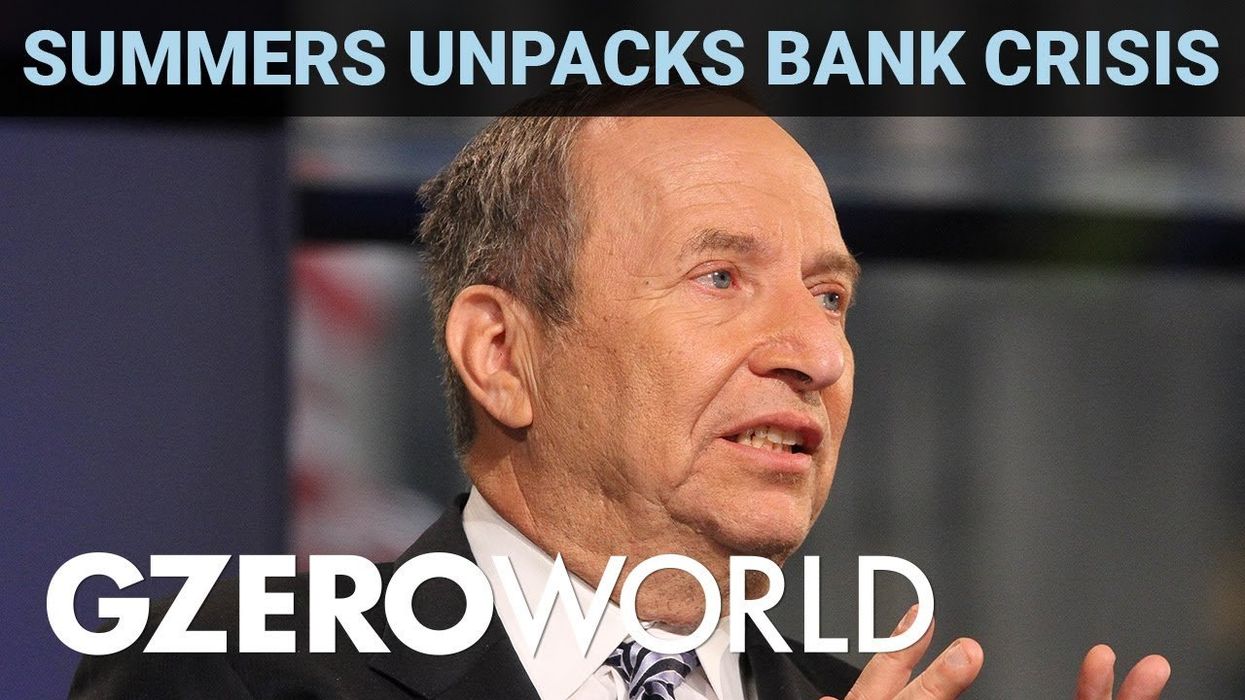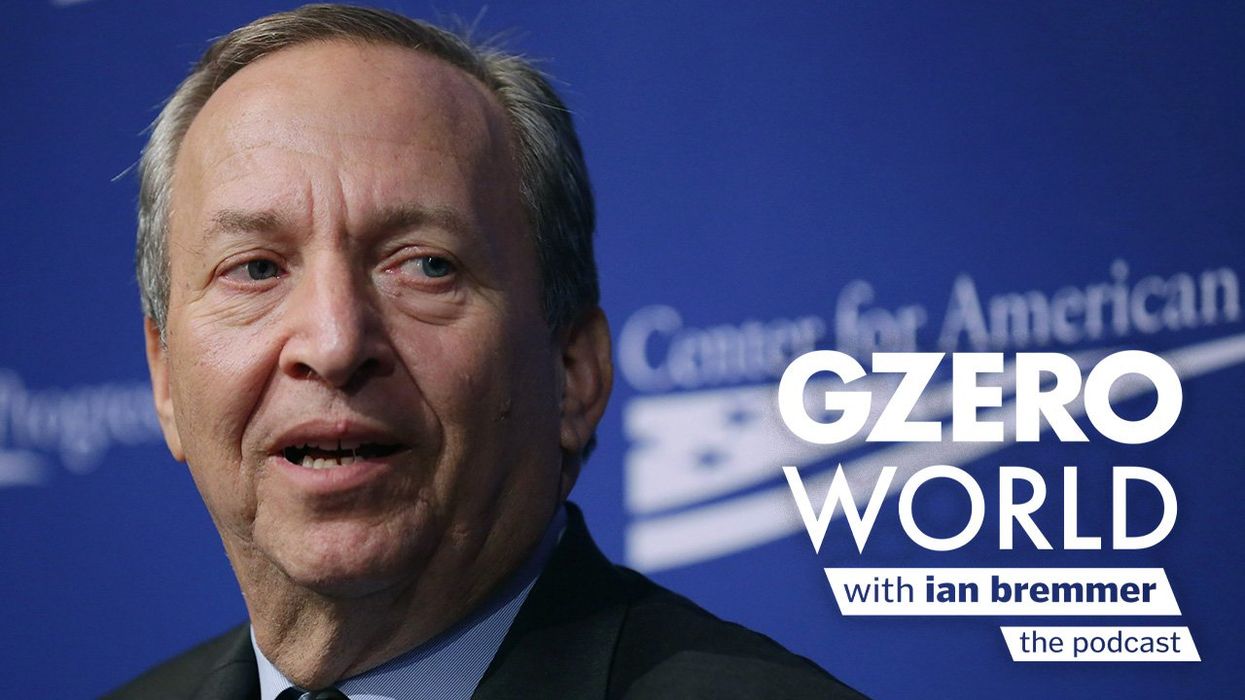GZERO North
Hard Numbers: COVID hospitalizations, fiery moves, banking job cuts, traffic jams
21.6 & 7: Data from the CDC and Canada’s government show that, since last week, COVID-19 hospitalization rates have risen in the US and Canada by 21.6% and 7%, respectively.
Aug 24, 2023

